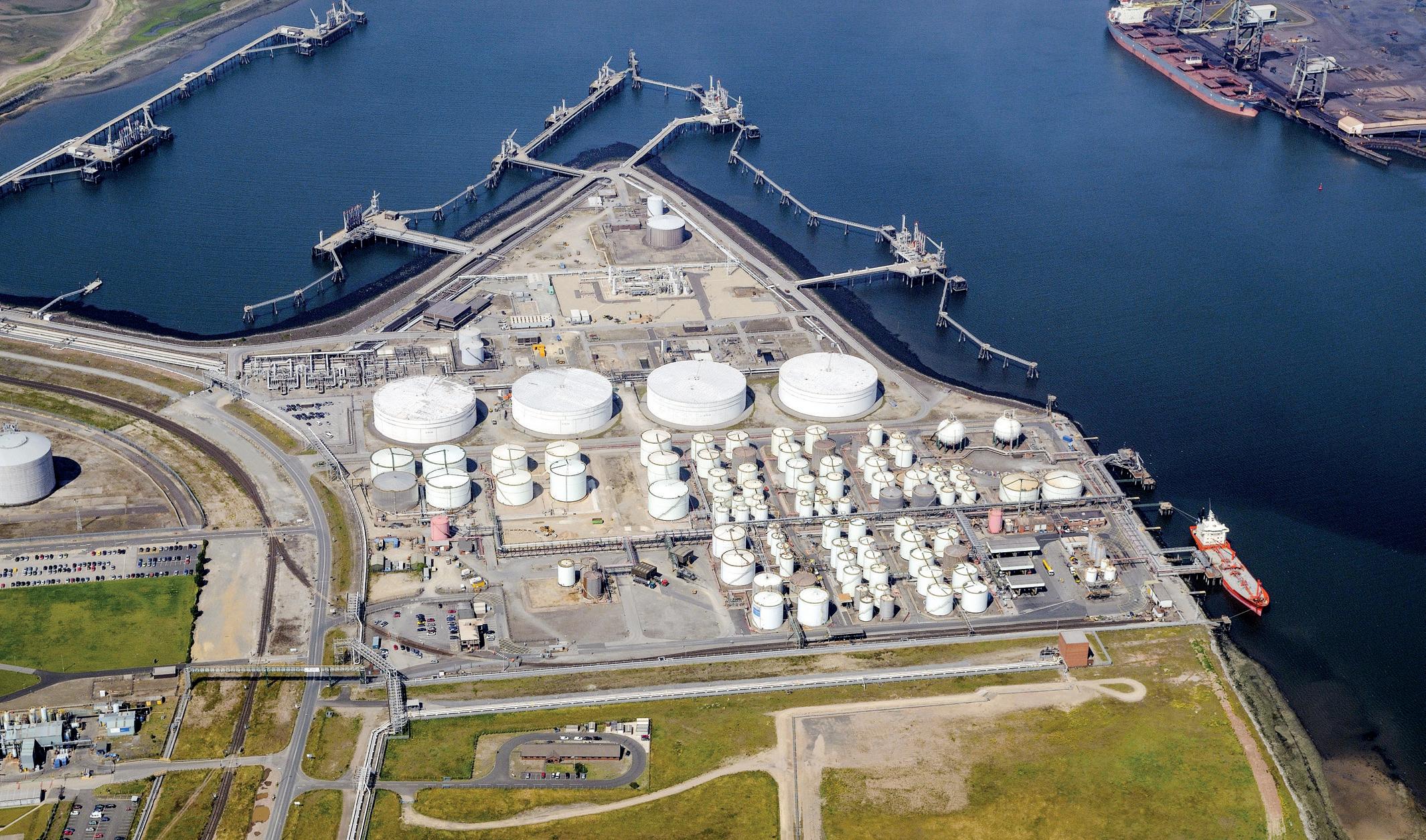
5 minute read
Keith Jackson’s 34 years at Inter
A CAREER IN STORAGE
MEMOIR • KEITH JACKSON, RECENTLY RETIRED FROM HIS ROLE AS OPERATIONS DIRECTOR AT INTER TERMINALS, LOOKS BACK OVER A NEAR 34-YEAR CAREER IN THE TANK STORAGE INDUSTRY
MY INTRODUCTION TO the world of bulk liquid storage was when I was in the British Merchant Navy and sailing the world in various tankers. During my eleven years’ service my primary duties as navigator were regularly interspersed with operating the cargo systems and maintaining deck equipment, as well as managing the deck crew after becoming Chief Officer on chemical carriers. On reflection this was excellent training for what was to become my career of nearly 34 years.
My first real encounter with what was then Simon Storage was from a chemical tanker in the early 1980s. Having spent a sleepdeprived week discharging vegetable oils in Vlaardingen before sailing a stormy North Sea in ballast to Teesside, we arrived at Simon’s Seal Sands terminal to load caustic soda. At that stage I didn’t appreciate the challenge of operating a loading terminal. All I thought they had to do was get the product into my cargo tanks - how wrong was I!
Following redundancy from the Merchant Navy aged 30, I sought to equip myself for a shore-based career. This led me to enrol on post-graduate diplomas in both Management and Marketing with a day-release option, which was just as well because shortly after I spotted a vacancy for a trainee manager for Simon Storage at Seal Sands. I applied, got the job and that was the start of my career with Simon Storage, latterly Inter Terminals.
TOMORROW’S WORLD In my early years with Simon Storage I was introduced to the different facets of the business and in 1988 was asked to compile a paper on what the 21st century terminal would look like. I still have a copy and it’s interesting to reflect on how much
of my ‘Tomorrow’s World’ vision actually happened. For example, I considered how regulation would become increasingly coordinated across Europe, with a growing focus on environmental and personal welfare. I concluded that the business had to evolve and develop new markets in order to survive and generate return on investment. How true this all turned out to be.
At that time the discussion around the decline of European commodity chemicals had already started, along with the volatility of oil prices and the influence of OPEC – even in those days figures of $7/bbl were being mooted. Technology, IT and associated control systems were seen as rapidly emerging factors in the storage sector, as was the value of data to our business and to our customers. Unlike now, however, the concept of cyber security did not feature in the thinking of 1988.
UK terminals were then operating under CIMAH regulations. COSHH had not yet arrived but the concepts of demonstration and risk assessments were clearly starting to form. Emission controls were being introduced in California and the Netherlands was actively contemplating the introduction of controls. Jumping ahead 30 years, air emission control is a serious and costly business and air quality and its impact on human health is a high priority. The change in approach over the last 30 years is quite staggering given current regulations.
At that time the chemical industry on Teesside - and indeed elsewhere in the UK - was very different from today. Terminal procedures were brief and given to operators to read and then follow – their involvement in creating or criticising these was certainly not encouraged. Today, the active participation
KEITH JACKSON HAS SEEN A LOT AND MADE A DIFFERENCE
IN HIS CAREER IN THE STORAGE TERMINAL INDUSTRY,
AND BELIEVES THAT GREATER DIVERSITY IN THE
of our people and the skill and knowledge they have is a deep vein to be mined. In 1988 I had pondered on how skills and competence within the industry would have to improve to meet changing demands and I believe we have embraced the need to upskill our employees such that they are equipped to deal with both technical demands and the wider challenges of process and personal safety expectations coupled with the need for ‘unease’ in their daily work life to recognise potential hazards and risks.
However, one area where I feel that as a sector we have not progressed as rapidly as some is gender balance, particularly within operations, engineering and maintenance, where a female is still a rare sight. It was a good day when Inter Terminals started a programme for mechanical and EC&I apprentices. The lack of these skills in the sector was becoming, and indeed remains, an issue. In conjunction with local training agencies we have found and developed some talented young people, including a young woman, who have been mentored by an enthusiastic team into well-qualified technicians for the future. BUNCEFIELD AND AFTER One cannot reflect on over 30 years in this industry without mentioning Buncefield and other international disasters like Texas City, which have shaped irrevocably the way we manage and structure our businesses. On the positive side, they have engendered new relationships and cooperation with regulators and were the catalyst for implementing process safety leadership within our industry. In my view as a senior manager with over 30 years’ experience, it has never been more important for management to be engaged at all levels of the organisation to ensure risks are understood and well managed and for employees to be active rather than passive in this process.
Summing up, I’m pleased to say that the management trainee scheme I joined when I took my first job at Simon Storage all those years ago continued and evolved to attract a broad range of talented individuals into the business. Making that long-term investment has assured future generations of leaders equipped with the skills to meet the challenges of the future. I think this all helps to leave the business in safe hands for the future. www.interterminals.com










